From an election manifesto for construction to the latest in biophilic design, there is something for all tastes at Ecobuild. Andrew Brister picks out some of the highlights
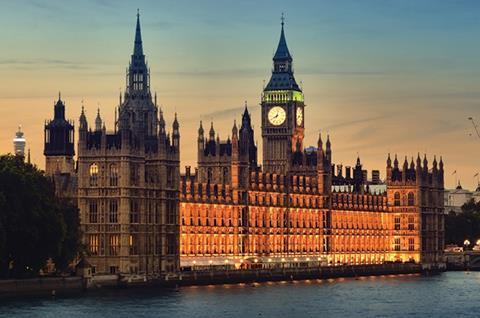
View the full Ecobuild programme here >>
Register for free here >>
Election fever
The countdown to 7 May has begun. The rise of the SNP and Ukip, and surging membership for the Greens, makes this a difficult election to judge and another coalition government seems a distinct possibility. While we wait for the parties and broadcasters to agree the terms of the pre-election televised debates, Ecobuild has many conference and seminar sessions, featuring senior politicians Ed Davey, secretary of state for the department of energy and climate change; Maria Eagle, shadow secretary of state for the department of environment, food and rural affairs; and former deputy prime minister John Prescott; for you to debate party policies and their impact on the built environment. Building magazine has asked its readers what the next government’s priorities for the industry should be and these will be unveiled in The Building Debate: Agenda 15, a manifesto for construction. Sir John Armitt CBE will be among those speaking.
The shockwaves from the recent victory for Syriza in Greece are still being felt; a move that could break up monetary union and cause schisms within the EU. The UK election result could bring about a referendum on European membership and an Ecobuild conference session, which includes Lord Deben, examines the impact of a no vote on UK sustainability policy.
Which political party is most likely to help drive a greener property sector after the election? A conference debate will be assisted by the launch of a new scorecard, grading policies against a set of good practice principles for environmental policy making.
Rounding things off will be none other than Alastair Campbell, best known as director of communications and strategy for prime minister Tony Blair between 1997 and 2003. Who better to give his thoughts on an election that is simply too close to call?
Essential Ecobuild sessions
Tuesday 3 March
2015 10.30 - 11.30
Conference Does a ‘no’ vote for European membership mean the end of UK sustainability policy?
Tuesday 3 March
12.00 - 13.00
Conference The political debate: Greening the grid - is low-carbon electricity a vote loser?
Tuesday 3 March
16.30 - 17.30
Conference The Building Debate: Agenda 15, a manifesto for construction
Wednesday 4 March
10.30 - 11.30
Conference Which political party is most likely to help drive a greener property sector after the election?
Wednesday 4 March
15.00 - 16.00
Conference The political debate: Is it time for a national resilience plan?
Thursday 5 March
10.30 - 11.30
Conference The political debate: Unaffordable homes - can the costs of zero carbon be justified in the current market?
Thursday 5 March
15.00 - 16.00
Conference Alastair Campbell - a seasoned political operator’s view of the impending election
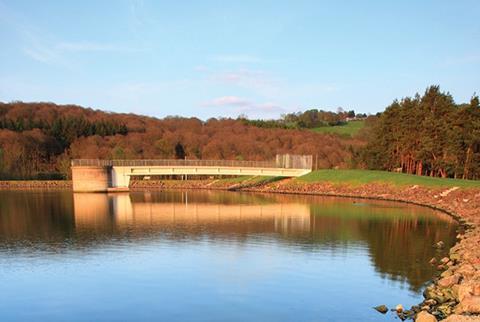
Water, water everywhere
The UK is getting used to extreme weather events, yet the National Audit Office states that current spending is insufficient to meet many flood defence maintenance needs. Resilience is a key topic at this year’s Ecobuild and there is much on offer at both the conference sessions and seminars in the Water and Design zones. Perhaps a national environmental resilience plan is needed? Climate change mitigation strategies require a long-term national infrastructure plan backed with sufficient funding, and a conference session will examine what this should look like and whether the money can be made available.
Away from the conference, seminar sessions cover the role of planning in managing the water challenges, and water-sensitive urban design, a holistic approach to the water cycle taking in water supply, waste water and surface water management. Speakers include Peter Massini, principal policy officer - green infrastructure at the Greater London Authority and Professor Richard Ashley, emeritus professor of urban water at the University of Sheffield.
Peter Bide, independent consultant and former policy adviser to the communities department, will argue that water management must be at the heart of planning and a session on effective urban water management looks at reliable, resilient and sustainable urban systems and collaborative working with grey and green infrastructure. The effects on London will be explored in a session where Simon Hughes, deputy director, London at the Environment Agency will reveal the Thames 2100 Strategy.
Essential Ecobuild sessions
Tuesday 3 March
2015 10.45-12.15
Seminar Effective water policy and practice - more than legislation and standards
Tuesday 3 March
14.30 - 16.00
Seminar Water-sensitive urban design (WSUD): Opportunities, principles and design challenges
Wednesday 4 March
12.30 - 14.00
Seminar Retrofitting SuDS: The next big thing
Wednesday 4 March
15.00 - 16.00
Conference The political debate: Is it time for a national environmental resilience plan?
Wednesday 4 March
16.30 - 18.00
Seminar Landscape led masterplanning
Thursday 5 March
10.30 - 12.00
Seminar Putting water management at the heart of design and planning - what does this mean for development?
Thursday 5 March
12.30 - 14.00
Seminar Delivering effective urban water management
Thursday 5 March
14.15-15.45
Seminar Water resilience for cities
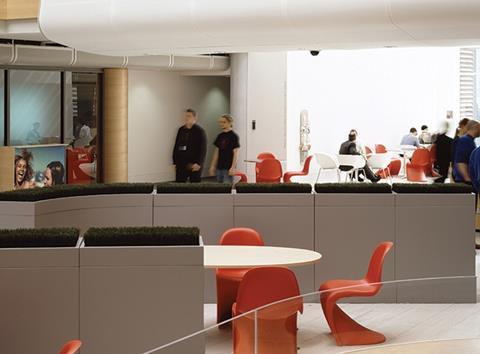
The feel-good factor
What is the ultimate goal with sustainable construction? Is it about use of materials with low environmental impact? Should low energy consumption and incorporation of renewable technologies be the driving force? What about the human benefits of green building? Staff costs, including salaries and benefits, typically account for about 90% of business operating costs. Therefore a modest improvement in employee health or productivity can have a huge financial impact - one that is many times larger than any other savings associated with an efficiently designed and operated building.
Wellbeing features heavily at this year’s Ecobuild. The ancient Buddhist practice of mindfulness is having a quiet moment in the limelight and will be among the thoughts of delegates at conference. Paul Dolan, professor of behavioural science at the London School of Economics and Political Science, will reveal how the built environment drives feeling and behaviour and Jane Henley, chief executive of the World Green Building Council, hosts a session on how to measure occupier wellbeing and whether buildings that score highly can achieve enhanced rental premiums.
Biophilic design explores mankind’s connection with nature to create spaces that enhance wellbeing. Examples include maximising natural light and providing views out onto green spaces. Architect and interior designer Oliver Heath examines the benefits of the approach. Former mayor of London Ken Livingstone will be among the speakers at a session looking at how to design cities with wellbeing at heart.
Seminars in various zones address a wide range of issues around health and wellbeing, including the role of effective lighting design, where Dr Paul Littlefair, principal lighting consultant at the BRE, chairs a session.
Essential Ecobuild sessions
Tuesday 3 March 2015
10.15 - 11.15
Conference Unlocking environmentally responsible behaviour - can mindfulness help us make the change?
Tuesday 3 March
12.30 - 14.00
Seminar Designing to promote wellbeing in and around buildings
Tuesday 3 March
13.30 - 14.30
Conference Happiness by design: How the built environment drives feeling and behaviour
Tuesday 3 March
16.15-17.45
Seminar Connecting sustainable buildings with health, productivity and wellbeing
Wednesday 4 March
12.00 - 13.00
Conference Occupier wellbeing - how do we measure it and what does it mean for the property industry?
Wednesday 4 March
12.30 - 14.00
Seminar Health + comfort + efficiency = the impossible dream?
Wednesday 4 March
16.30 - 17.30
Conference Biophilic design: How incorporating nature creates value and improves wellbeing in buildings
Thursday 5 March
12.00 - 13.00
Conference People before profit: Designing cities with wellbeing at heart
Thursday 5 March
12.30 - 14.00
Seminar Lighting design: Promoting health and wellbeing
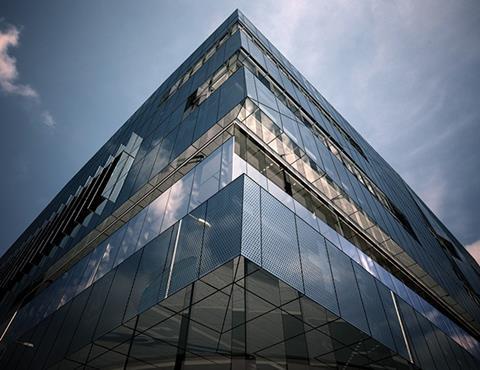
Innovation, innovation, innovation
The government’s 2025 Industrial Strategy for Construction includes ambitious targets: a 33% reduction in the initial cost of construction and whole-life costs built into assets; a 50% reduction in greenhouse gas emissions; and a 50% reduction in the trade gap between total exports and total imports of products and materials. Innovations in new processes and cutting-edge materials can help us to achieve these targets and Ecobuild will explore how to bridge the gap between new ideas and delivery. Professor Tadj Oreszcyzyn, professor of energy and environment and director of the UCL Energy Institute at University College London, will join Michael Pawlyn, director Exploration Architecture; Dan Epstein, director of sustainability at Useful Simple Projects; and others, exploring why many excellent research ideas never make it to site.
A joint initiative between M&S and Ecobuild, The Big Innovation Pitch, is aiming to unearth a true sustainable innovation for the retail sector. Those that have made it through the heats will participate in a live Dragon’s Den-style pitch to an expert judging panel on Ecobuild’s show floor. M&S will work with the winning company to investigate applying the innovative product or service in its buildings.
Innovative heat and energy solutions in urban settings will be explored in a seminar session chaired by Gareth Roberts, partner at Sturgis Carbon Profiling, and Dr Rick Robinson, executive architect, smarter cities at IBM, will look at future energy technologies which are underpinning development in smart buildings, grids and cities. Visitors will get an opportunity to put their questions on grid management innovation and technology in an “Ask the expert” session in the Solar City zone.
Essential Ecobuild sessions
Tuesday 3 March 2015
12.30 - 14.00
Seminar Innovative heat and energy: Urban case studies
Tuesday 3 March
12.30 - 14.00
Seminar Innovate UK Building Performance Evaluation Programme
Tuesday 3 March
15.00 - 16.00
Conference Ideas that construction needs - why are they gathering dust on a shelf?
Tuesday 3 March
16.30 - 17.30
Conference Innovation and new materials: Could they revolutionise sustainable construction?
Wednesday 4 March
10.30 - 12.00
Seminar Smart and efficient use of future energy
Wednesday 4 March
12.00 - 13.00
Conference The big innovation pitch: A competition with Marks & Spencer
Wednesday 4 March
16.30 - 18.00
Seminar Ask the expert: Grid management innovation and technology
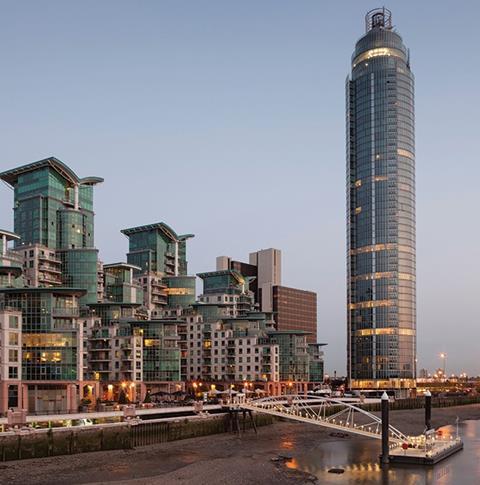
Design matters
Good design is at the heart of sustainable construction and always an essential ingredient at Ecobuild. This year is no exception, with Steve Tompkins of Haworth Tompkins Architects, designer of the Stirling prize-winning Everyman Theatre in Liverpool, discussing his approach to sustainable design with The Independent’s Jay Merrick. Architectural publication BD is hosting three Ecobuild debates. High-rise residential blocks always create fierce debate, both for and against. Are tall towers the only answer to population growth in UK’s cities? Ike Ijeh, architectural correspondent at BD, will host a debate looking at whether tall buildings are more sustainable than low-rise alternatives and the potential impact on quality of life for both residents and those living nearby.
Development needn’t be at the expense of landscape. Sir Terry Farrell will speak on how the Thames Estuary is being transformed as a place where landscape is the primary infrastructure. Four leading sustainability practitioners, including Rab Bennetts from architect Bennetts Associates, discuss their guiding principles and how these can be realised in the face of tough competition and cost-cutting.
High-quality housing design is too often sacrificed for standard solutions with little thought for the surrounding public realm. A BD debate, which includes renowned designer Wayne Hemingway, will look at what can be done to increase design quality in housing.
Seminar sessions on design issues can be found throughout the three days. Topics include the benefits of adopting Passivhaus design principles, the use of bio-based materials and design for deconstruction and reuse. Can sustainable design actually cost less than conventional solutions? Chris Twinn of TwinnSustainabilityInnovation chairs a session looking at what can be done when paying a premium to take sustainability mainstream is no longer an option.
Essential Ecobuild sessions
Tuesday 3 March 2015
10.45-12.15
Seminar Passivhaus: A model for designing for local climate differences as well as for anticipated climate change?
Tuesday 3 March
12.00 - 13.00
Conference Style, substance and sustainability - Steve Tompkins in discussion with Jay Merrick
Tuesday 3 March
14.30 - 16.00
Seminar How can we achieve small-scale, high-quality green construction and retrofit in the real world?
Tuesday 3 March
15.00 - 16.00
Conference The BD Debate: Tall towers - the most sustainable way to accommodate a burgeoning population?
Tuesday 4 March
16.15-17.45
Seminar Towards a photosynthetic architecture: The role of bio-based materials in the built environment
Wednesday 4 March
10.30 - 12.00
Seminar Can Passivhaus lead to a “zero-carbon” future for the UK?
Wednesday 4 March
13.30 - 14.30
Conference Working with landscape as a catalyst for development
Wednesday 4 March
14.30 - 16.00
Seminar Design for deconstruction and reuse: The circular economy in action
Thursday 5 March
0.30 - 11.30
Conference Sustainability without compromise: The professionals’ view
Thursday 5 March
10.30 - 12.00
Seminar Future sustainability: From cost-plus to cost-minus (is this intentionally bold?)
Thursday 5 March
13.30 - 14.30
Conference The BD Debate: Quality housing fit for 21st-century living - why can’t we get it right?
Thursday 5 March
14.15-15.45
Seminar Passivhaus - delivering small, medium and large-scale projects
View the full Ecobuild programme here >>
Register for free here >>



























No comments yet